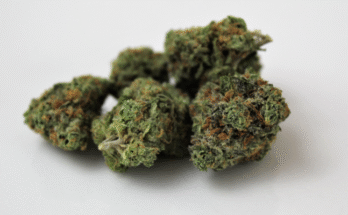The UK government covered up a report by its own experts that advocated for the decriminalisation of personal-use drug possession.
The report from 2016 was not only ignored by the Home Office, they also fought a three-year battle to keep it confidential after a freedom of information request, journalist Mattha Busy revealed in the Guardian.
The leaked document, consisting of 27 pages, sheds light on a previously hidden perspective within the corridors of power. This revelation has sparked a fresh debate on the nation’s drug policies and their impact on society.
In this blog post, we’ll dive deeper into the details of this report and its potential implications for drug policy in the UK.
Unveiled
The Guardian newspaper managed to obtain a copy of the 2016 report that was presented to the then Home Secretary by the chair of the Advisory Council for the Misuse of Drugs (ACMD).
This report called for the reevaluation of the criminalisation of personal drug possession.
It argued that criminalisation might not be an effective strategy in reducing drug use and that it could harm individuals’ educational and employment prospects.
One of the key points highlighted in the report was the lack of evidence supporting the effectiveness of criminalisation in reducing drug use.
Moreover, the report emphasised that the UK was not legally obligated to criminalise drug use under its international treaty obligations.
Government resistance
What’s even more intriguing is that the Home Office not only ignored the report at the time but also fought vigorously for three years to keep it confidential after a Freedom of Information request.
This secrecy raises questions about the government’s commitment to transparency and evidence-based policymaking.
Expert opinion
The revelation has triggered criticism of the government’s approach to drug policy, with some arguing that it is causing greater harm to those who use drugs.
The Scottish government, for instance, has pointed out the negative consequences of such policies.
Experts in the field, such as Professor David Nutt, who was dismissed from his role as the government’s chief drug adviser in 2009, have voiced their concerns.
They argue that the government’s persistence in pursuing criminalisation is illogical, inhuman, and ineffective.
Helen Clark, the former prime minister of New Zealand and chair of the Global Commission on Drug Policy, has commended the report’s recommendations and called on the UK government to take them seriously.
This revelation comes at a time when the UK government has unveiled plans to impose jail sentences of up to two years for possessing substances like laughing gas unless it is used for legitimate purposes.
Conclusion
The rediscovery of a 2016 report advocating for the decriminalisation of personal-use drug possession has reignited the debate on drug policies in the UK.
It raises questions about the effectiveness and consequences of the current approach to criminalisation.
With public opinion and expert voices weighing in, how long will the UK government continue its destructive war on drugs?
Read: The Real Reason Cannabis Was Made Illegal in the UK
Read: 10 Things Everyone In The UK Needs To Know About Cannabis
🌿 Sign up below for UK Cannabis Weekly – where over 15K canna-curious readers enjoy a 5-minute weekly dose of the latest UK weed news, reviews and insider tips!




